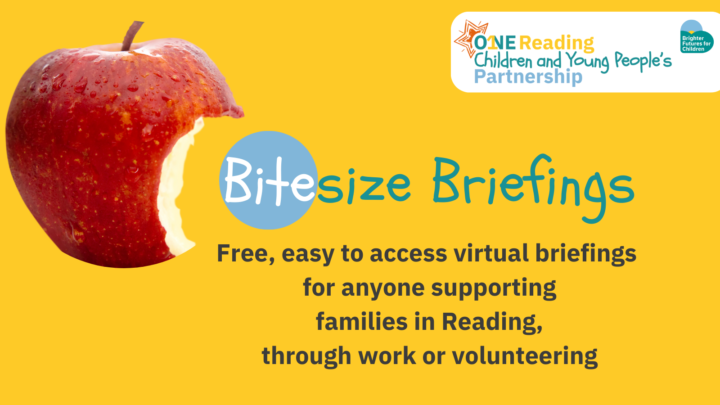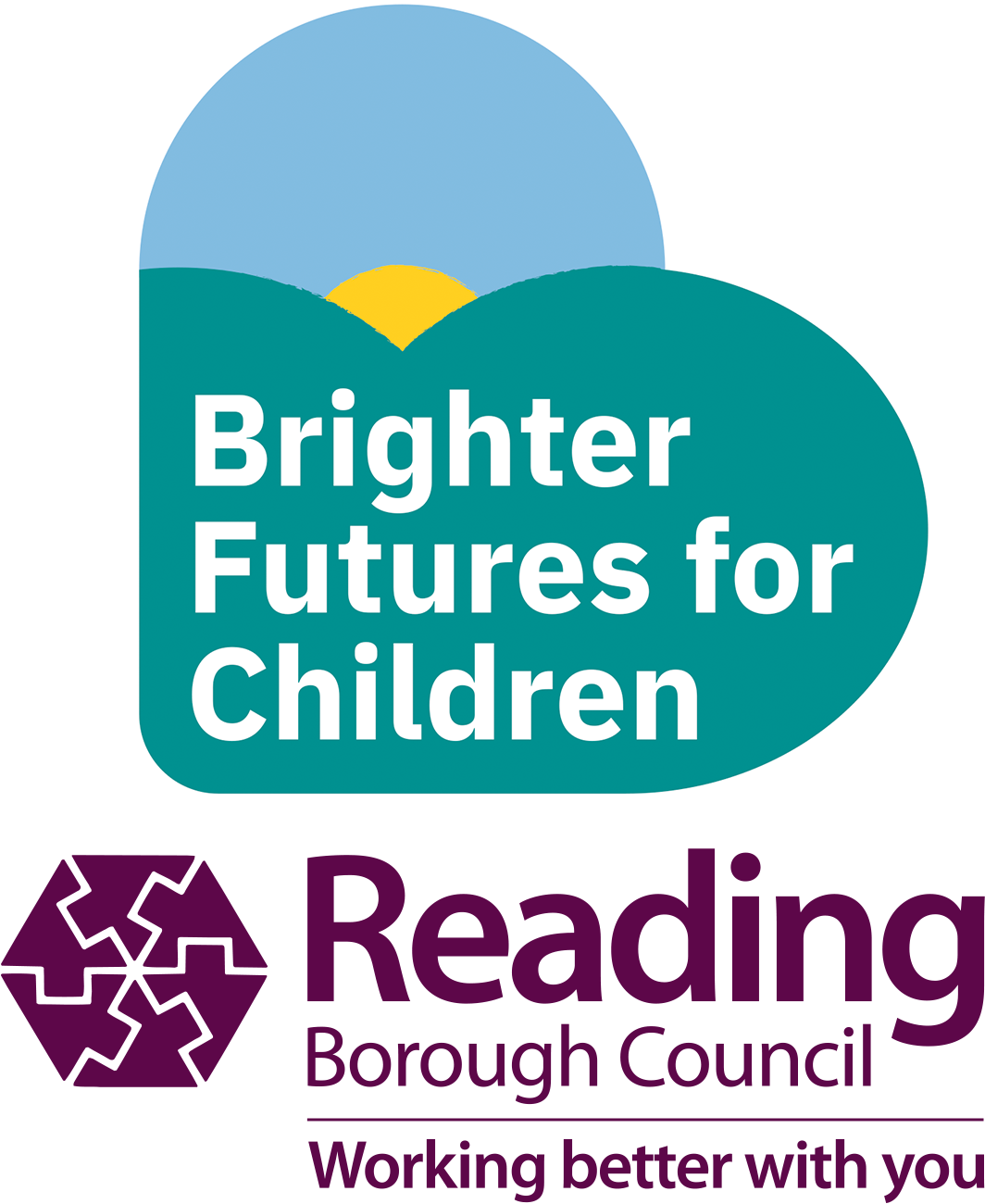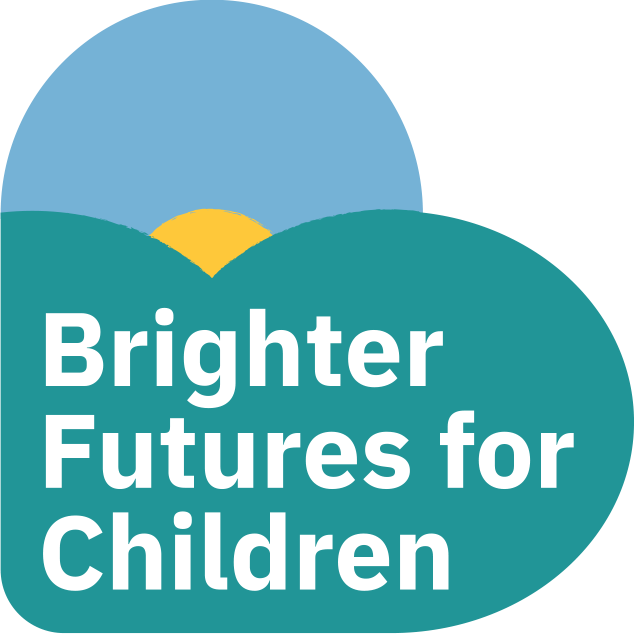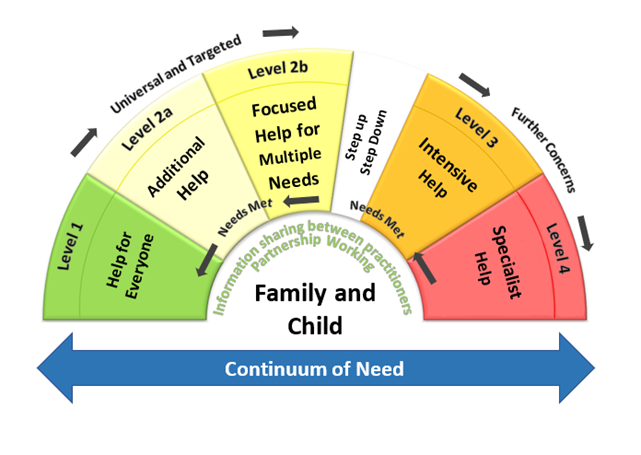- Home
- Professionals
- Early help and prevention services
- One Reading Children and Young People’s Partnership
Support from One Reading Children and Young People's Partnership


The partnership team works with Brighter Futures for Children and external partners including police, health and education to promote and embed early help arrangements as the basis to deliver our ambitious shared outcomes for the children, young people and families of Reading.
This page provides information to support all Reading colleagues as part of the One Reading Partnership.
Bitesize Briefings
Last year, our partnership team held several webinars for professionals and volunteers working with families in Reading.
You can catch up on any you missed, below. We’ll keep you updated with plans for further webinars.

Missed a briefing?
Don’t worry, you can watch them all on our Bitesize catch ups, linked below, or you can find them all on our Bitesize Playlist on YouTube.
- Berkshire young people’s mental health services demystified
- Daisy's Dream - bereavement charity
- Emotionally Based School Avoidance
- From Conflict to Connection (formerly Reducing Parental Conflict)
- Holiday activity and Food (HAF) scheme in Reading
- Housing in Reading
- ONE Reading Partnership Hub
- Reading Family Information Service (FIS)
- Reading Threshold Guidance
- SAFE! Project
- Kicks - Reading FC
Click a title in the accordion below to expand for useful information and guidance
Early help sits at threshold two, in the Reading Threshold Guidance Document. This is broken down into two sections:
Threshold 2A – additional needs
These families require additional targeted support from a single agency to address the concern that has been identified.
If you are a professional from a universal service which works with children, young people and families and have identified a family or young person with additional needs, (threshold 2A) you can access advice, guidance, services and support with a lead professional through the One Reading Partnership Hub.
Threshold 2B – multiple needs
This is the level at which there is a need for a clear coordinated multi-agency response and assessment may be appropriate.
Not all families who meet threshold 2B will need targeted help and a partnership outreach worker may be recommended. If you think the needs meet threshold 2B, please complete the CSPoA referral form here.
Not all families who meet threshold 2B will need targeted help and a Partnership Outreach Worker may be recommended by CSPoA.
The image below illustrates where 2A and 2B sit on the spectrum of needs.
Simply, everyone.
As with safeguarding children and young people, early help is everyone’s responsibility. The first person to offer support to a child or young person and their family should be the practitioner identifying the issue.
But for early help to be effective, all local organisations should work together to identify those children and families who would benefit from this service and undertake assessments of their needs (Working Together to Safeguard Children – link to government guidance).
Staff in local organisations may be asked to act as the lead professional to help a family, either by Children’s Single Point of Access or the family.
A lead professional coordinates the right support, at the right time and is ideally someone the family already have a good working relationship with.
As part of an Early Help Assessment, a lead professional will be chosen by the family to co-ordinate their plan and the services that will be supporting them. This can include:
- Organising activities around the family meetings
- Keeping the family plan on track
- Ensuring that the family plan is up to date
We have three dedicated partnership outreach workers whose role is to support lead practitioners in coordinating the plan and services who will work with the family.
The partnership outreach worker will work directly with you in completing the early help assessment, holding Team Around the Family meetings, accessing resources or making referrals to community organisations who may be able to provide further support to the family.
This is a consent-based service and parents must be made aware that you will be working with a partnership outreach worker.
Partnership outreach workers do not work directly with families, so although they will meet the family in TAF meetings, their role is to support the professional. This helps families avoid having to repeat their story to multiple professionals.
Email onereading@brighterfuturesforchildren.org to be put in touch with your partnership outreach worker and learn how they can support you.
Early help arrangements include an Early Help Assessment, and a Team Around the Family plan.
What is an Early Help Assessment?
The Early Help Assessment is a simple way to identify the needs of children and their families to make a plan to meet those needs.
This assessment is called ‘Information about my family’ and is a brief document to consider the following:
- Who is in the family and who is important to them?
- Who has helped the family before?
- What they need help with and why?
- What are their strengths and what could be better?
- Information about the children’s attendance, relationships, and attainment at school
It is not a referral and must be completed with consent from the family. We encourage you to complete and return this within five weeks.
Click the button to download the Information About My Family assessment.
As a practitioner in Reading, you may be familiar with Team Around the Family meetings. These are multi-agency meetings with all professionals who are working with the family, plus the family members themselves. The purpose is to draw together the needs and possible outcomes for the whole family.
In a Team Around the Family meeting, the lead practitioner will encourage those present to consider what is going well for everyone in the family, what their goals are, and what barriers there are to achieve them. This will inform a plan which may include referrals to services, engaging in courses or working with another team, or accessing provisions such as young carers respite clubs.
Click the button below to download the ONE Reading TAF form.
A TAF should be held within eight weeks of the first contact, and every eight weeks after.
Our approach
The national Supporting Families programme provides a framework of delivery for Brighter Futures for Children and its partners that raises our aspirations and in turn the aspirations of families.
The principles of the Supporting Families programme are cognate with other key partnership guidance including Working Together to Safeguard Children (2018) and Keeping Children Safe in Education (2022).
Here in Reading, in line with the Berkshire West Safeguarding Children threshold guidance, the supporting families programme aims to meet the needs of families as early as possible, continue to support those in need of protection and build on experiences of whole family working across partner organisations.
Our approach to the Supporting Families programme is not about a single team, but a whole service delivery model whereby we can measure outcomes for the families that we work with, narrow the gap and give children the best start in life. It’s about transforming services and transforming outcomes for families.
We will do this by:
- Early Help – intervening before issues and costs increase
- Family Plans – putting the whole family at the centre of service planning
- Co-ordinated multi agency approach – local services working more effectively together
- Transforming the way we work – collaborative and cohesive partnerships, developing resilient communities
Four Key Principles
The four key principles of Supporting Families remain
– early intervention
– whole family working
– multi-agency working
– measuring outcomes and data.
Outcomes for Families
The national outcomes framework has been revised and from 3 October 2022 includes the following ten areas:
- Getting a good education
- Good early years development
- Improved mental and physical health
- Promoting recovery and reducing harm from substance use
- Improved family relationships
- Children who need help (safe from harm)
- Crime prevention and tackling crime
- Safe from domestic abuse
- Secure housing
- Financial stability
Data Protection
Fair processing of personal information our Privacy Policy sets out how we use, store and share the data we collect through the Supporting Families Programme.
Working with a family
If you think you are working with a family who might be linked to the Supporting Families programme please email: onereading@brighterfuturesforchildren.org
We work closely with the Department for Work and Pensions and our Reading Job Centre partners. We have an employment advisor, Nadia Malik, who is dedicated to the Reading Supporting Families Programme. Nadia’s role is to provide direct support to parents/carers wishing to return to work and to also provide advice, guidance and support to those working with families.
Please email onereading@brighterfuturesforchildren.org if you would like to find out more.
The One Reading Partnership Hub is a local response to Working Together to Safeguard Children (2018) and Keeping Children Safe in Education (2023).
What happens at a Partnership Hub meeting?
The One Reading Partnership Hub provides a multi-agency platform for consideration of a child and family’s needs. Once a family has been referred to the Partnership Hub and consent is obtained from the parents, the lead practitioner will be invited to attend the meeting to represent the family.
Partners in the hub include mental health practitioners, including those from the Mental Health Support Team Mentally Healthy Schools Team, a CAMHS representative, a representative from Children’s Single Point of Access and a representative from Early Help. There may also be other partners from Thames Valley Police, and from the Reading Voluntary Action.
The lead practitioner will be given some time to talk about the challenges the family are facing and what support has already been put in place.
The One Reading Partnership Hub will make recommendations and/or suggestions as to next steps.
This includes:
- Advice or guidance relating to particular needs such as mental health or financial needs.
- Access to a service or organisation, for example in the voluntary or community sector.
- Support around the lead professional role, including mobilising a Team around the Family.
Objectives of the ORPH
- To facilitate a range of perspectives to enable an integrated understanding of the child’s and family’s needs.
- To improve access to community and partner support
- To improve understanding of thresholds of need.
- To promote a trauma informed community.
- To promote an ecological model of resilience by working with professionals to improve their understanding of mental health.
- To promote a “right support, right person, right time” approach towards mental health needs.
If you have a family you would like to discuss at the Partnership Hub, please complete the Early Help Assessment and consent form, then email them to OneReading@brighterfuturesforchildren.org
- To facilitate a range of perspectives to enable an integrated understanding of the child’s and family’s needs.
- To improve access to community and partner support
- To improve understanding of thresholds of need.
- To promote a trauma informed community.To promote an ecological model of resilience by working with professionals to improve their understanding of mental health.
- To promote a “right support, right person, right time” approach towards mental health needs.
If you have a family you would like to discuss at the Partnership Hub, please complete the Early Help Assessment and consent form, then email them to OneReading@brighterfuturesforchildren.org
“Providing early help is more effective in promoting the welfare of children than reacting later. Early help means providing support as soon as a problem emerges, at any point in a child’s life.
Effective early help relies upon local organisations and agencies working together to identify children and families who would benefit from early help.
Local organisations and agencies should have in place effective ways to identify emerging problems and potential unmet needs of individual children and families. This requires all practitioners, including those in universal services and those providing services to adults with children, to understand their role in identifying emerging problems and to share information with other practitioners to support early identification and assessment.”
Working Together to Safeguard Children (2018)



